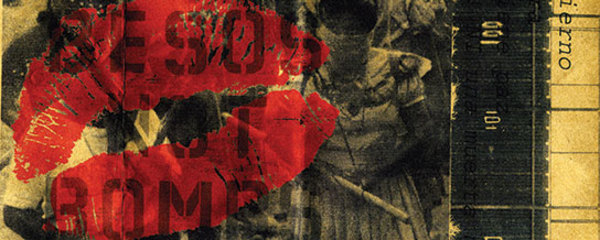Net Gains: Political Promise?
Unfortunately, most people only remember Howard Dean’s presidential run for “the roar,” his outrageous and […]
Net Gains: Political Promise?
Unfortunately, most people only remember Howard Dean’s presidential run for “the roar,” his outrageous and […]

Unfortunately, most people only remember Howard Dean’s presidential run for “the roar,” his outrageous and earnest “Yearghh!” blurt that circled on the internet for months after the 2004 caucuses. Beyond his derision-spurring yell, that presidential campaign is also remembered for jumpstarting online political action. Between Dean’s fundraising and the deployment of high-tech organizing tools–Meetup.com groups, blogs like Daily Kos, and the community-building success known as MoveOn.org–it seemed like progressives ruled online politics.
But this year’s midterm election, as well as the 2008 vote, will be the real proving ground for the internet’s political potential. In fact, Senator Harry Reid already addressed the first Yearly Kos political blogging convention earlier this summer. According to Julie Germany and Carol Darr, both of the Institute for Politics, Democracy & the Internet at George Washington University, most of the signs point towards a huge increase in online political activity, with interest groups learning how to leverage social-networking sites.
What are progressive groups, who rely on grassroots organizing, doing to make their mark online in 2006? Answer: MySpace. Germany points out that the site’s potential, which bolsters blogging and email tools, has already been utilized by groups like Planned Parenthood, which has a huge presence on the site and recently ran a MySpace-oriented campaign in Louisiana.
The social-networking behemoth is so ubiquitous (and fast-moving) that the BLOC Network (Building Leadership Organizing Communities) recently developed Mybloc.net as a MySpace for the left. Debuting this July at the Hip-Hop Political Convention in Chicago, it’s designed to enable organizers to stay in touch after large national meetings, create profiles for groups or campaigns, and plot strategy–all without ads or Fox prez Rupert Murdoch (who recently purchased MySpace).
Additionally, Germany and Darr point out that in countries like Nepal and the Philippines, political movements and protests are being organized using text-message technology. Even groups like the Sweet Relief Musicians Fund charity now allow donors to text small contributions.
But will it work for bigger campaigns? According to Mervyn Marcano, Communications Director of the League of Pissed-Off Voters, anything that assists street-level organizing and enables people without computers to participate in politics helps.
“The internet plays a very big role [in] trying to get people out for initiatives and keeping them clued in to what we’re doing,” said Marcano. “But a lot of people who work with us do not [have access to] the internet…We have an affiliate in New Orleans, and that’s not the place to do online organizing right now. At the end of the day, going on campuses and [to the] streets in our neighborhoods is still the best way to make people know what we’re doing.”
Though it’s easy to get carried away with new innovations, it’s important for organizations to maintain focus. Sascha Lewis–founder of the Flavorpill family of online entertainment newsletters, which launched a political newsletter called Activate in June–says it’s still all about crafting the right message. Emails remain the killer app, and the best way to keep members informed, but no matter what medium is used, political groups will falter if they don’t stay focused.
“The web is amazing because it’s enabled everybody to be a publisher, and the democratization of publishing is something we all should embrace,” says Lewis. “But you need to respect what that means and define the cause. If [you ‘re] going to make a stand or position [yourself] as a leader, you [have] do it with a certain set of standards so that people take you seriously.”

